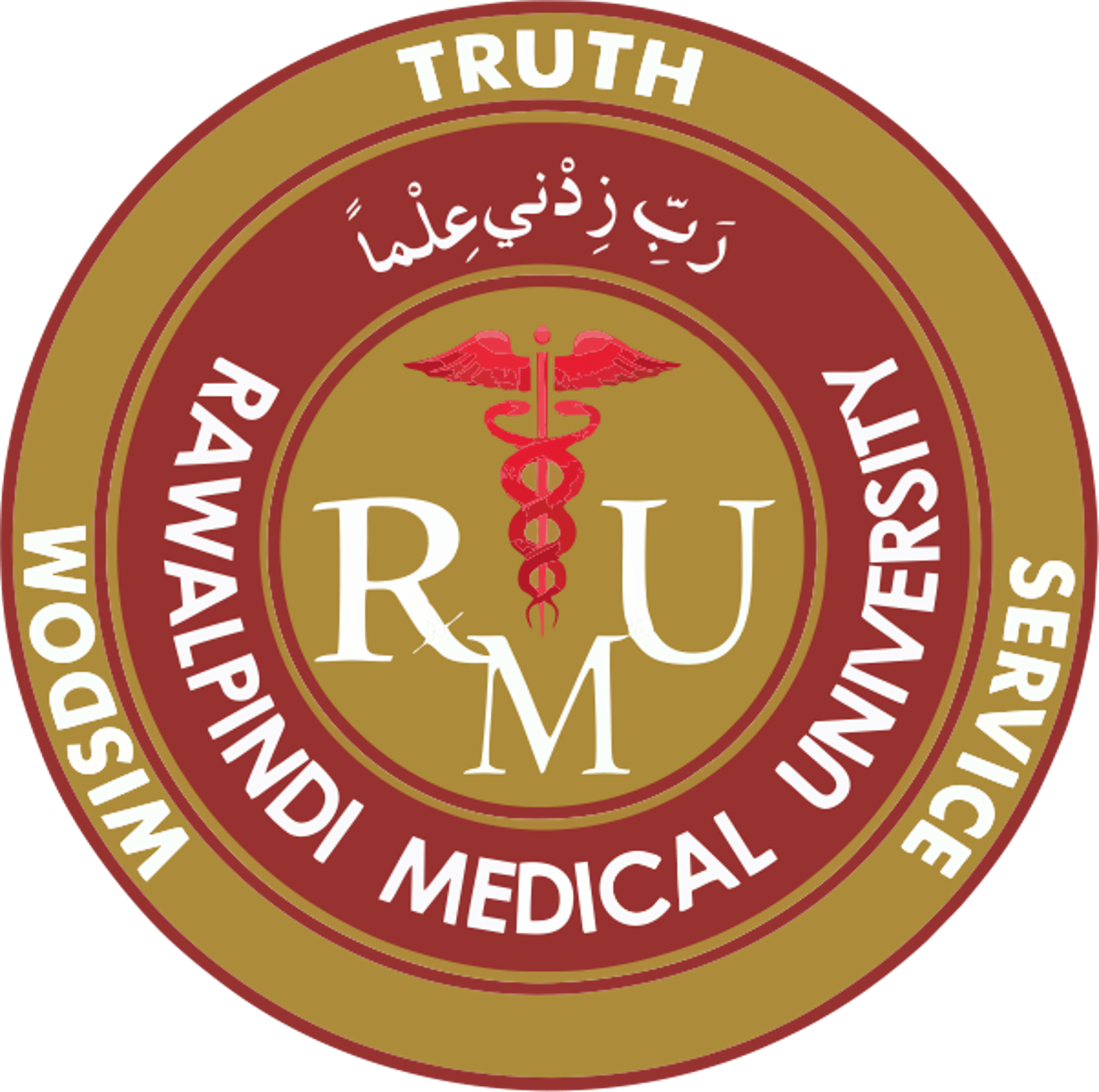RMU Residency Program (MS / MD)
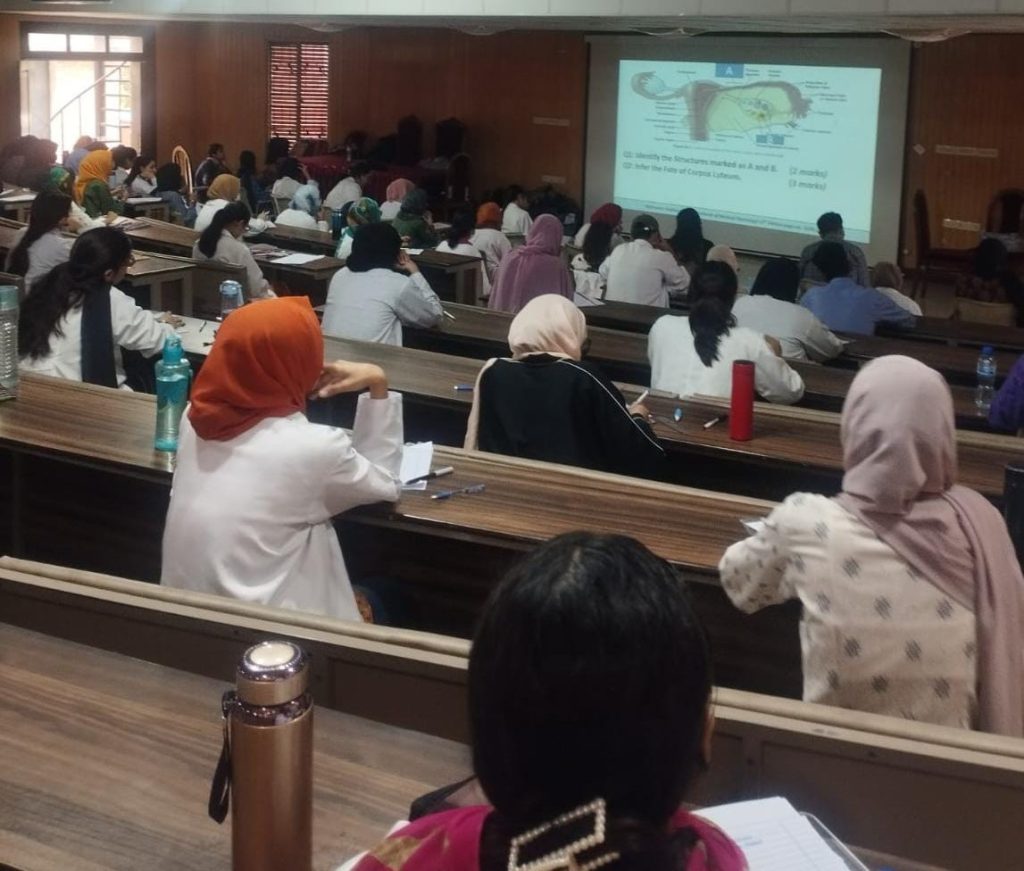
RMU Residency Program (MS / MD)
Overview
Rawalpindi Medical University (RMU) offers a comprehensive and fully recognized University Residency Program (URP) leading to MD (Doctor of Medicine) and MS (Master of Surgery) degrees across 16 departments. This structured postgraduate training program is designed to produce competent, ethical, and research-oriented medical specialists who meet both national and international standards. The program has been recognized by the Higher Education Commission (HEC) of Pakistan since March 2018 and is also approved by the Pakistan Medical and Dental Council (PMDC) for specialist registration. All MD/MS programs are based on the six core competencies defined by the Accreditation Council for Graduate Medical Education (ACGME): patient care, medical knowledge, practice-based learning, interpersonal and communication skills, professionalism, and systems-based practice.
The MD residency programs include Internal Medicine, Paediatrics, Radiology, Anaesthesiology, Dermatology, Psychiatry, Emergency Medicine, and Cardiology. The MS residency programs include General Surgery, Orthopaedic Surgery, Obstetrics and Gynaecology, Otorhinolaryngology (ENT), Ophthalmology, Urology, and Neurosurgery. These 16 departments have received formal recognition in different years: MD Internal Medicine, Paediatrics, Radiology, General Surgery, Orthopaedic Surgery, and Obstetrics & Gynaecology were recognized in 2018; Anaesthesiology in 2019; ENT and Ophthalmology in 2020; Dermatology and Urology in 2021; Psychiatry and Emergency Medicine in 2022; and Cardiology and Neurosurgery in 2023.
The residency training is conducted in RMU’s affiliated teaching hospitals, which include Holy Family Hospital, Benazir Bhutto Hospital, and District Headquarters Hospital Rawalpindi. These hospitals provide a rich clinical learning environment with modern diagnostic and treatment facilities, diverse patient exposure, and supervised mentorship by experienced faculty. The University Residency Program at RMU continues to grow in excellence and scope, reflecting the university’s dedication to producing future leaders in medicine and surgery who are equipped to serve both locally and internationally.
RMU MD Programs
General Surgery
Psychiatry
Infectious Diseases
Diagnostic Radiology
Dermatology
Critical Care
Nephrology
Gastroenterology
Cardiology
Emergency Medicine
Pulmonology
Pediatrics
RMU MS Programs
Medicine
Gynecology And Obstetrics
Orthopedics
Plastic Surgery
Pediatric Surgery
Urology
Neurosurgery
Anesthesia
Otorhinolaryngology
Ophthalmology
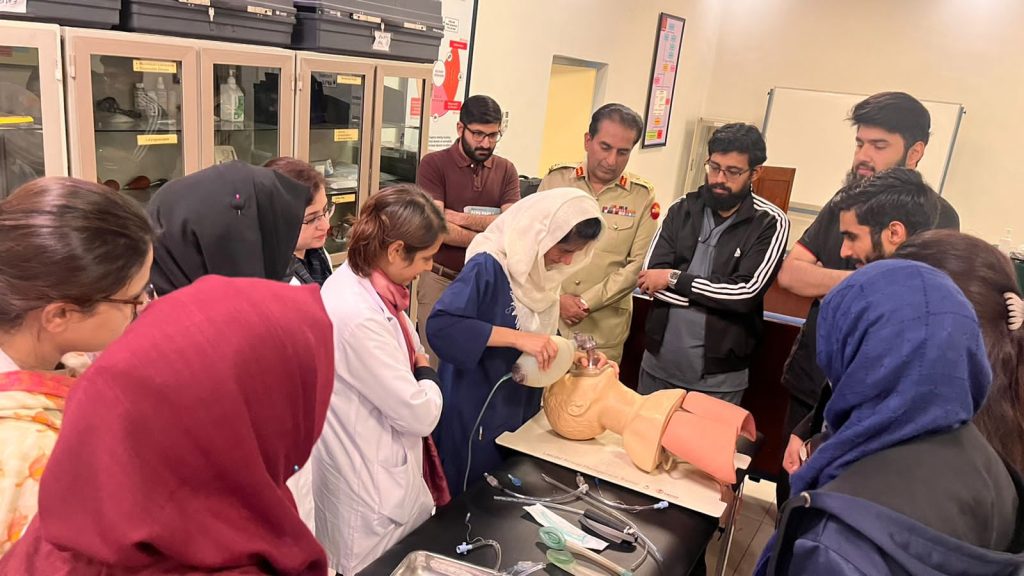
MD Internal Medicine
Rawalpindi Medical University offers a comprehensive MD in Internal Medicine program that equips trainees with in-depth knowledge and hands-on clinical skills necessary to diagnose, treat, and manage a wide range of adult diseases. This program emphasizes a multidisciplinary approach, integrating evidence-based medicine with patient-centered care. Residents receive extensive training through structured rotations in sub-specialties such as cardiology, gastroenterology, endocrinology, and infectious diseases. The program focuses on building diagnostic acumen, clinical reasoning, and leadership in medical teams, making graduates capable of handling complex cases in both inpatient and outpatient settings. With access to RMU’s affiliated tertiary hospitals, residents are exposed to a diverse patient population and cutting-edge medical technology that prepares them for independent clinical practice or academic careers.
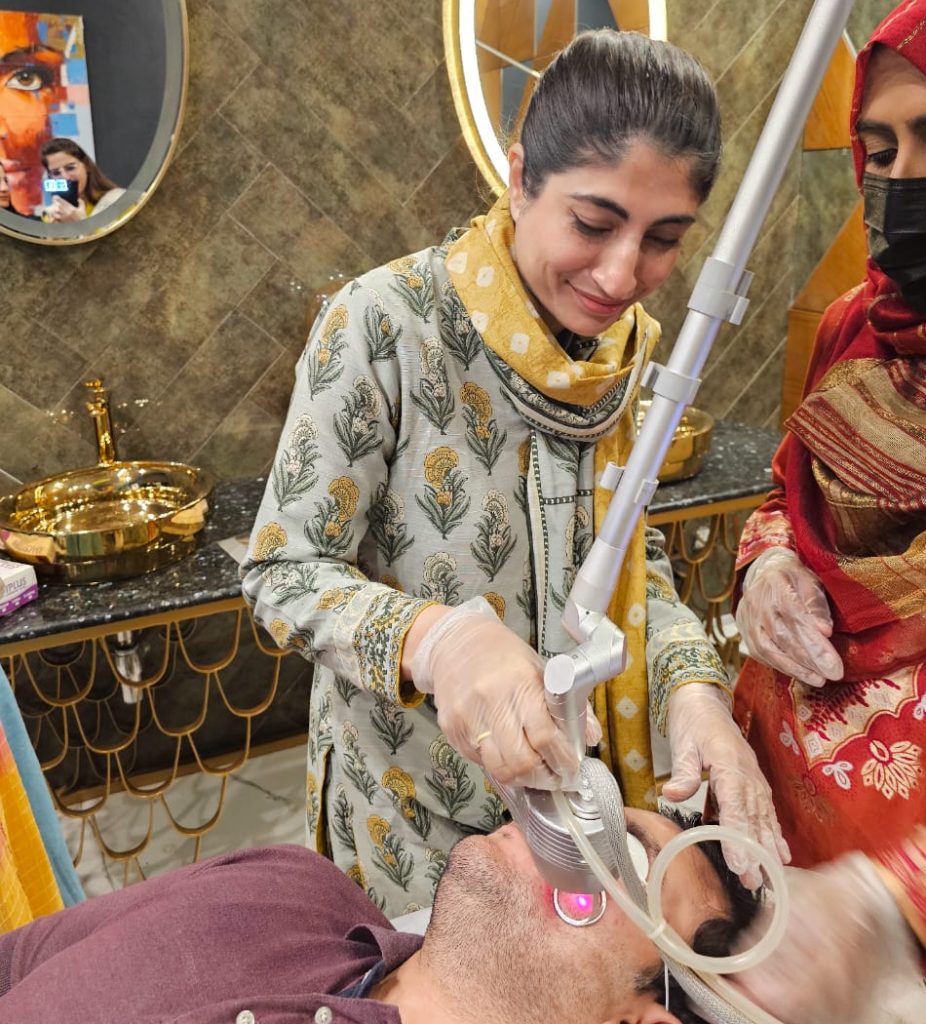
MD Dermatology
The MD Dermatology program at RMU is designed to train physicians in the diagnosis and management of skin, hair, and nail disorders with an emphasis on both clinical dermatology and dermatopathology. The program includes rigorous academic coursework, clinical rotations, and hands-on procedural training in dermatological surgery, laser therapy, and cosmetic dermatology. Residents are mentored by experienced dermatologists and encouraged to participate in research and community outreach programs related to skin health. The curriculum integrates modern diagnostic techniques such as dermoscopy and patch testing, ensuring graduates are proficient in delivering holistic dermatologic care. With a growing burden of skin diseases in Pakistan, the program aims to produce specialists capable of addressing both common and rare dermatological conditions with confidence and competence.
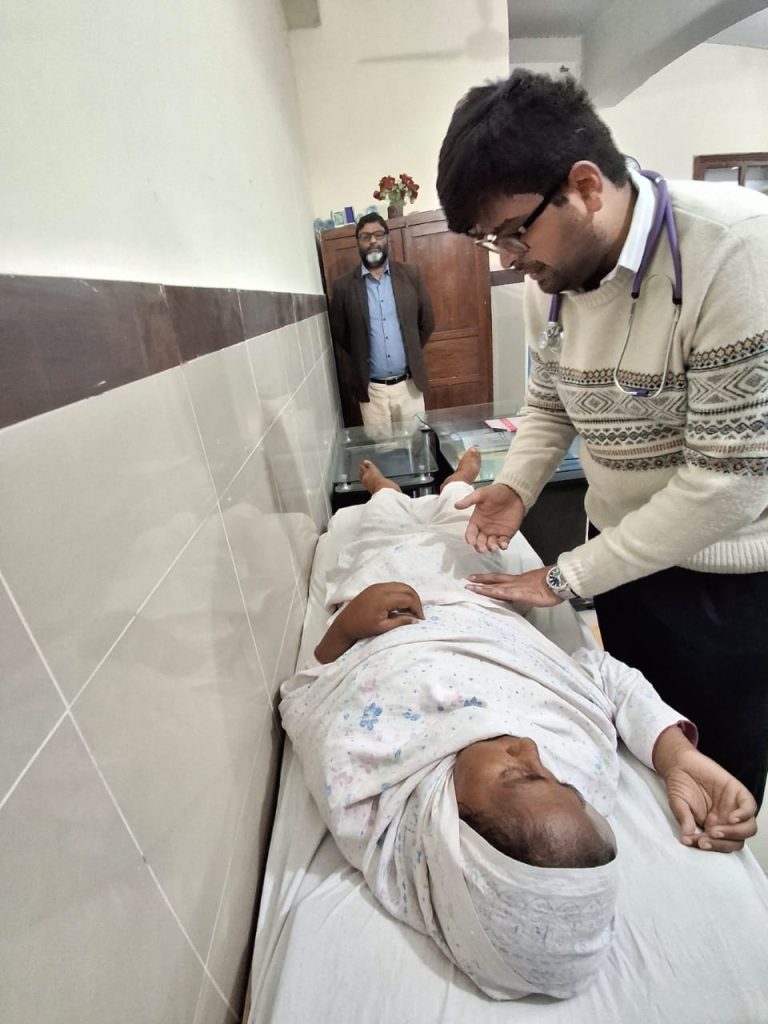
MD Cardiology
RMU’s MD Cardiology program is a robust, research-oriented and clinically rich training track tailored to produce future leaders in cardiovascular medicine. It encompasses intensive training in all aspects of cardiology including non-invasive and invasive diagnostics, interventional procedures, and management of acute and chronic cardiac diseases. The program features rotations in echocardiography, cardiac catheterization labs, electrophysiology, and cardiac intensive care units. Residents actively participate in academic discussions, case conferences, journal clubs, and are encouraged to contribute to cardiovascular research. The high volume of patients and the diversity of cardiac pathologies encountered in RMU-affiliated hospitals provide an excellent learning environment. Graduates emerge with strong clinical acumen and technical skills suited for tertiary care centers or academic cardiology roles.
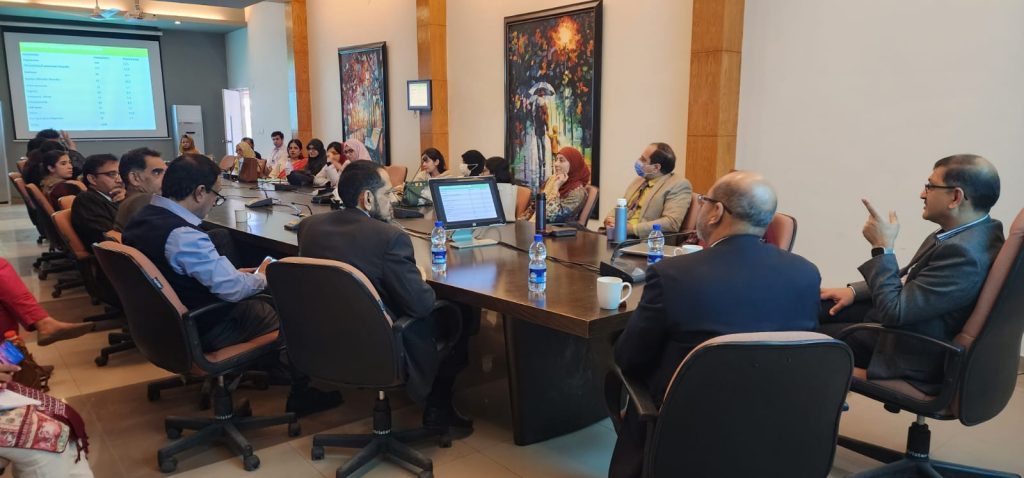
MD Psychiatry
The MD Psychiatry program at Rawalpindi Medical University is a structured, multidisciplinary training program aimed at developing psychiatrists capable of addressing the growing mental health needs of the population. The curriculum integrates theoretical knowledge with clinical practice in general adult psychiatry, child and adolescent psychiatry, addiction psychiatry, forensic psychiatry, and psychotherapy. Residents are trained to diagnose and manage a wide spectrum of psychiatric disorders using pharmacological and non-pharmacological approaches. The program encourages active involvement in mental health advocacy, research, and community-based interventions. Through supervised practice and mentorship, trainees acquire the empathy, communication skills, and professionalism essential in the field of mental health. Graduates of the program are prepared for leadership roles in clinical psychiatry, teaching, and policy-making.
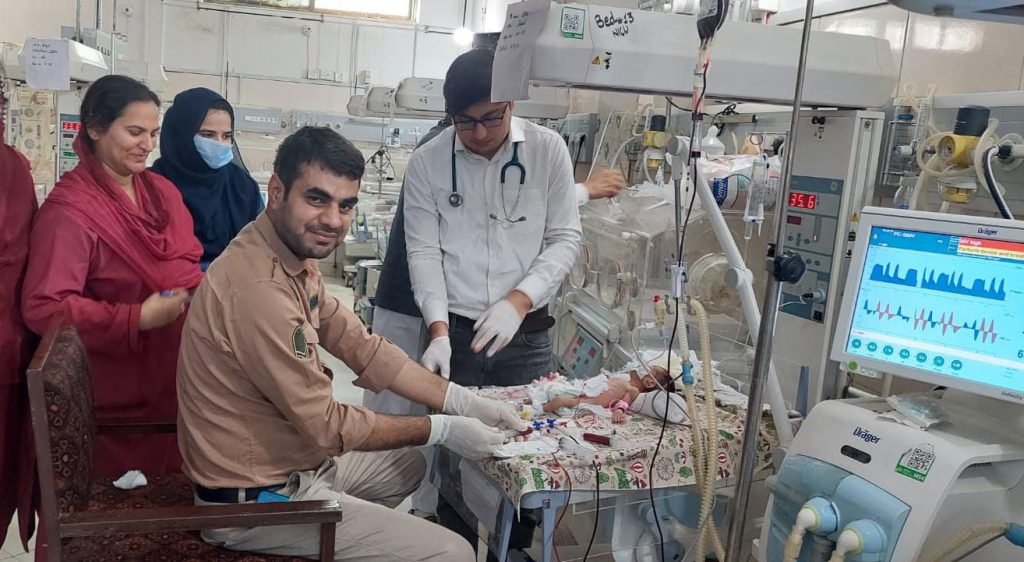
MD Critical Care
The MD in Critical Care Medicine program at RMU is tailored to develop specialists who are proficient in managing critically ill patients in intensive care units (ICUs). This demanding and dynamic program focuses on the management of multi-organ failure, complex ventilation strategies, hemodynamic monitoring, and the use of advanced life support technologies. Residents are trained in evidence-based critical care, procedural skills such as central line insertion, intubation, and advanced airway management, and in ethical decision-making in life-threatening situations. The program includes rotations in medical, surgical, and cardiac ICUs and is supported by faculty with extensive experience in intensive care. With the increasing demand for skilled intensivists, RMU’s Critical Care MD graduates are well-equipped to handle high-pressure environments in tertiary hospitals and lead ICU teams.
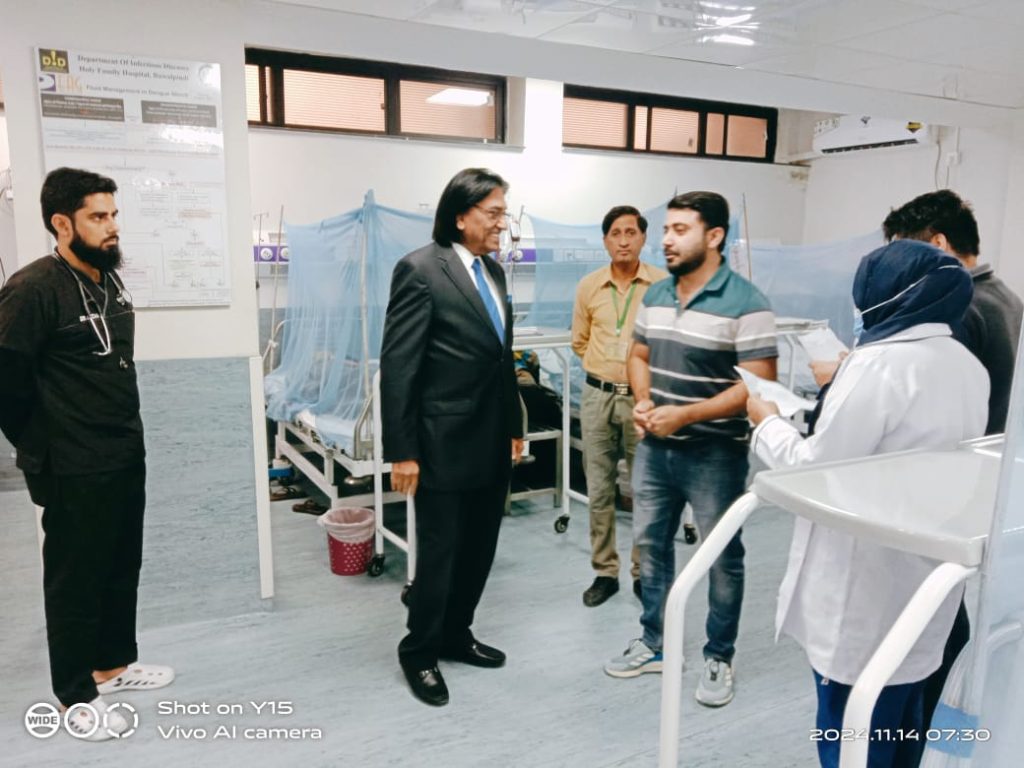
MD Emergency Medicine
Rawalpindi Medical University’s MD Emergency Medicine program provides rigorous training to equip physicians with the ability to rapidly assess, diagnose, and manage acute medical, surgical, and trauma-related emergencies. The curriculum emphasizes clinical decision-making, resuscitation, procedural skills, and disaster preparedness. Residents rotate through adult and pediatric emergency departments, trauma units, and pre-hospital emergency care systems. The program fosters a culture of rapid thinking, teamwork, and resilience. It also integrates training in toxicology, critical care, and ultrasound for emergency settings. Graduates emerge as confident emergency physicians, capable of leading emergency departments and contributing to the advancement of emergency medicine in Pakistan’s evolving healthcare landscape.
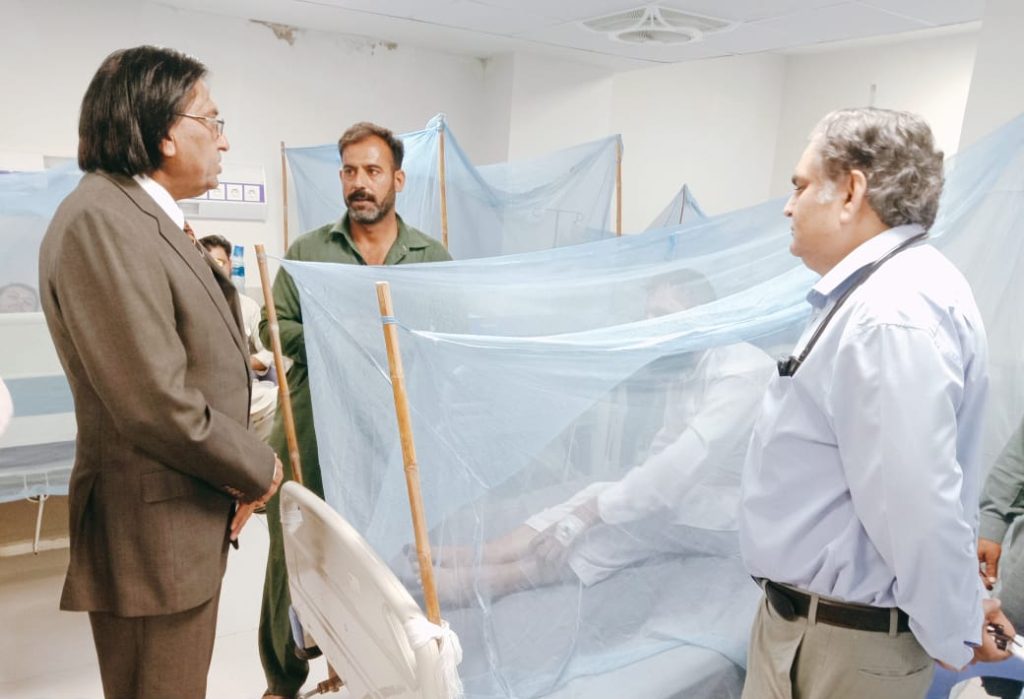
MD Infectious Diseases
The MD Infectious Diseases program at RMU is designed to produce highly skilled specialists capable of addressing the burden of infectious diseases prevalent in Pakistan and globally. The program includes training in the diagnosis and management of bacterial, viral, fungal, and parasitic infections, including emerging and re-emerging infections such as COVID-19, tuberculosis, dengue, and antimicrobial resistance. Residents receive training in infection control practices, antimicrobial stewardship, and epidemiology. They are also involved in outbreak investigations, research, and teaching. With a strong public health component, the program prepares graduates to work in clinical, academic, and policy-making roles in infection prevention and control.
MD Nephrology
RMU’s MD Nephrology program offers specialized training in kidney diseases, dialysis, and kidney transplantation. The curriculum includes detailed exposure to the diagnosis and management of acute kidney injury, chronic kidney disease, glomerulonephritis, and electrolyte disturbances. Trainees rotate through nephrology wards, dialysis centers, and transplant units. The program emphasizes procedural skills such as dialysis catheter placement and renal biopsies, and encourages participation in nephrology research. With the increasing incidence of renal disease in the country, RMU’s MD Nephrology graduates are trained to meet the needs of this growing patient population and lead advancements in renal care delivery.
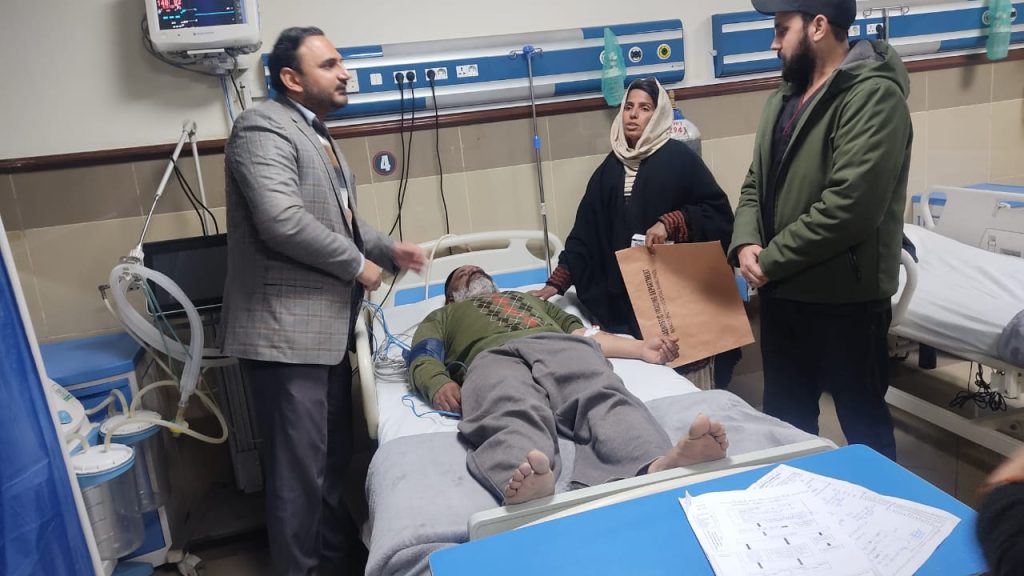
MD Pulmonology
The MD Pulmonology program at Rawalpindi Medical University is focused on the diagnosis and management of respiratory disorders including asthma, COPD, interstitial lung diseases, tuberculosis, and lung cancer. Residents receive training in pulmonary function testing, bronchoscopy, sleep studies, and critical care. The program provides clinical rotations in high-dependency respiratory units, TB control programs, and specialized pulmonology clinics. With Pakistan facing a high burden of pulmonary diseases, the program emphasizes research, public awareness, and disease prevention strategies alongside clinical excellence. Graduates are equipped to become leaders in both clinical and academic pulmonology.
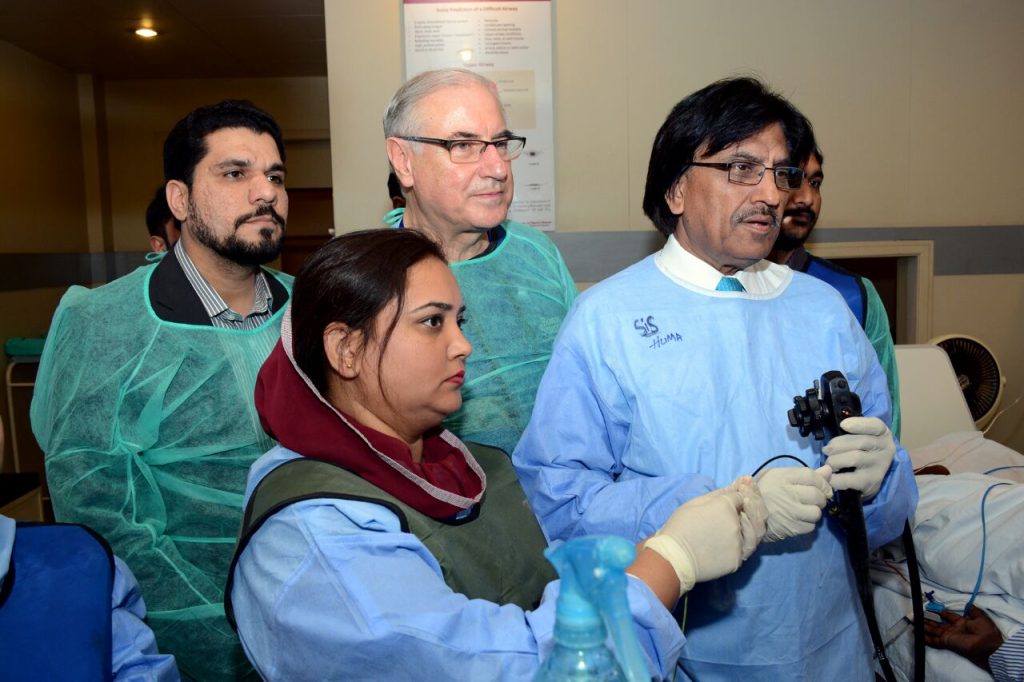
MD Gastroenterology
Rawalpindi Medical University’s MD Gastroenterology program is structured to train specialists in the management of gastrointestinal, hepatic, pancreatic, and biliary diseases. The program integrates clinical practice with endoscopic training including upper and lower GI endoscopy, ERCP, and advanced therapeutic procedures. Residents gain experience in managing conditions such as hepatitis, liver cirrhosis, IBD, and GI cancers. They are also exposed to hepatology clinics and liver transplant follow-up. Research and teaching are integral to the program, enabling graduates to pursue careers in academic gastroenterology, clinical practice, and policy development related to digestive health.
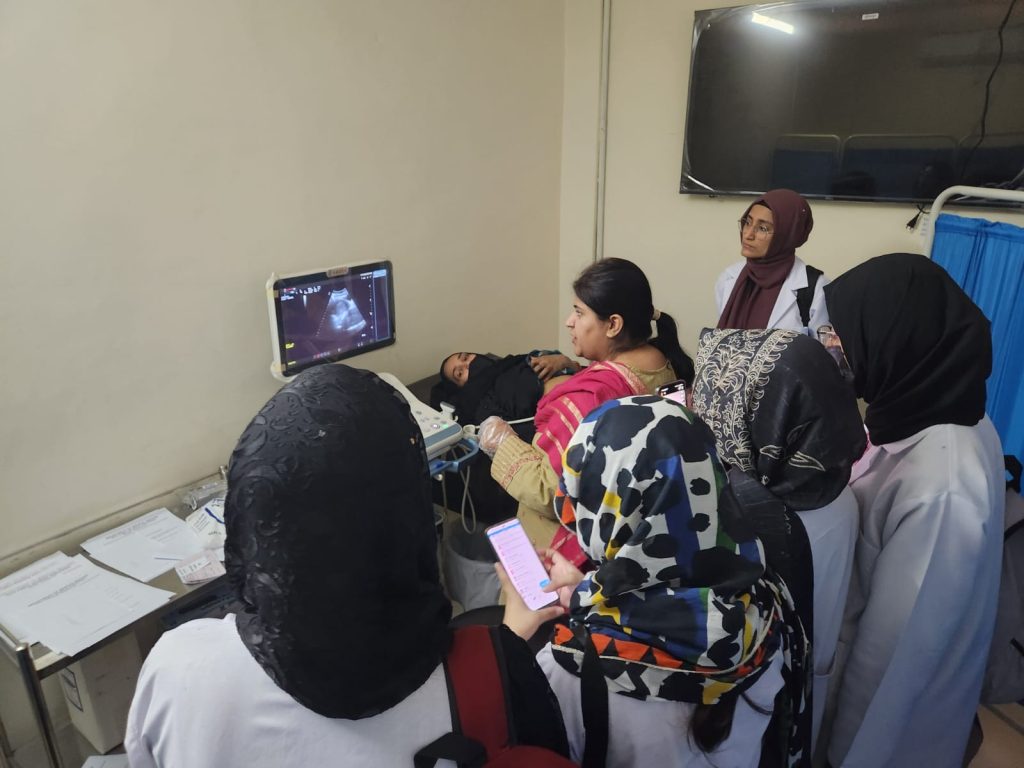
MD Diagnostic Radiology
The MD Diagnostic Radiology program at RMU provides in-depth training in imaging modalities including X-rays, ultrasound, CT, MRI, and interventional radiology. The curriculum is designed to develop interpretive and procedural skills required for accurate diagnosis and image-guided interventions. Residents rotate through all imaging departments and are involved in academic activities including radiological-pathological correlation and radiology case discussions. With growing reliance on diagnostic imaging in modern medicine, the program prepares graduates to deliver high-quality imaging services, conduct research, and contribute to multidisciplinary clinical teams in both public and private healthcare systems.
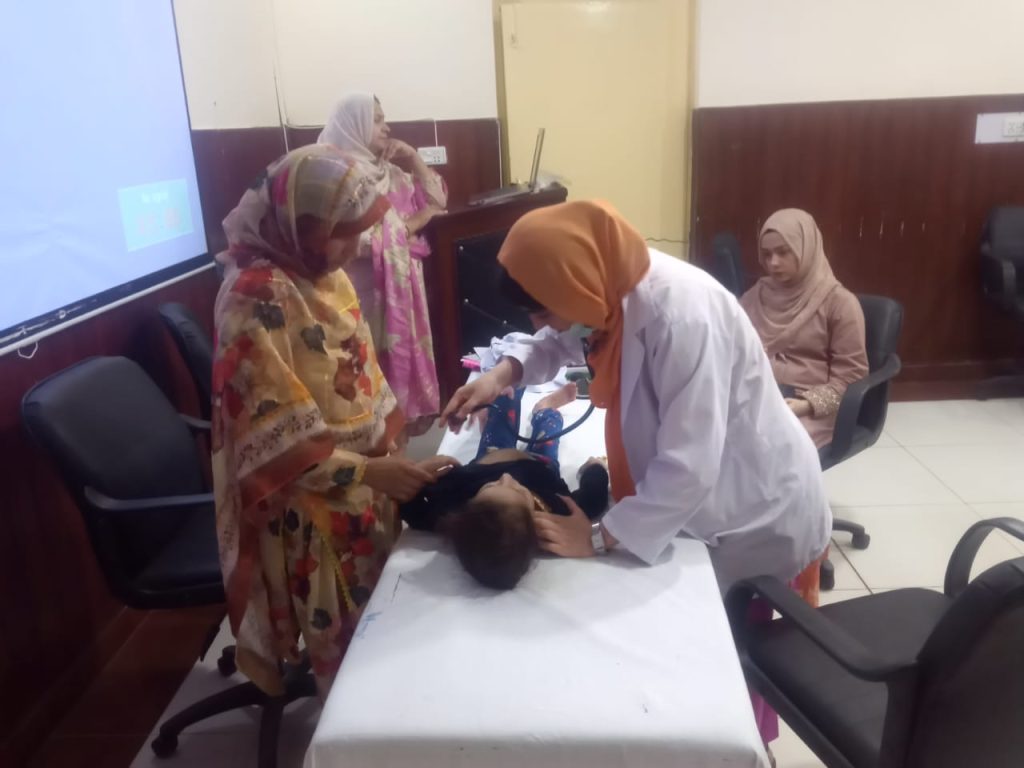
MD Pediatrics
Rawalpindi Medical University’s MD Pediatrics program offers comprehensive training in the care of infants, children, and adolescents. It includes core clinical rotations in general pediatrics, neonatology, pediatric ICU, and pediatric subspecialties such as cardiology, neurology, and endocrinology. Residents receive hands-on training in pediatric procedures, developmental assessments, and immunization programs. The program focuses on evidence-based medicine, child advocacy, and family-centered care. Graduates are capable of managing both acute and chronic pediatric illnesses and are encouraged to participate in research and community outreach programs to improve child health outcomes in Pakistan.
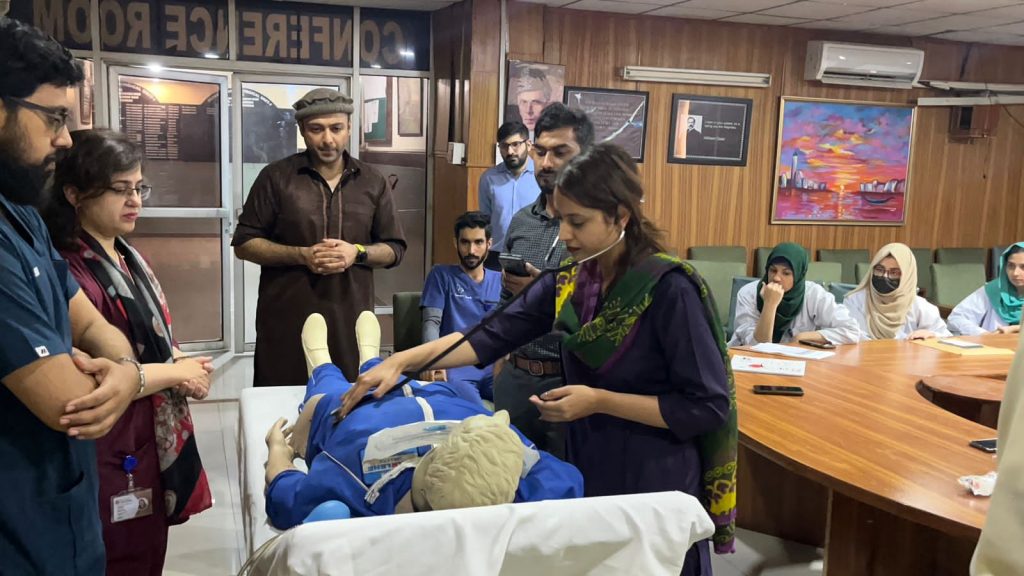
MS General Surgery
The MS General Surgery program at Rawalpindi Medical University is a structured and intensive surgical training program designed to develop competent, confident, and ethical general surgeons. This program combines hands-on operative experience with academic excellence and focuses on the principles of surgical pathology, preoperative and postoperative care, and modern surgical techniques. Residents are trained in a wide variety of procedures involving the abdomen, breast, thyroid, vascular system, and trauma management. They gain exposure to both elective and emergency surgeries and are expected to perform increasing levels of responsibility under expert supervision. The program fosters critical thinking, evidence-based practice, and research in surgical science. Graduates emerge as capable general surgeons ready to serve in tertiary care hospitals, teaching institutions, and rural outreach settings, addressing the surgical needs of the country with precision and compassion.
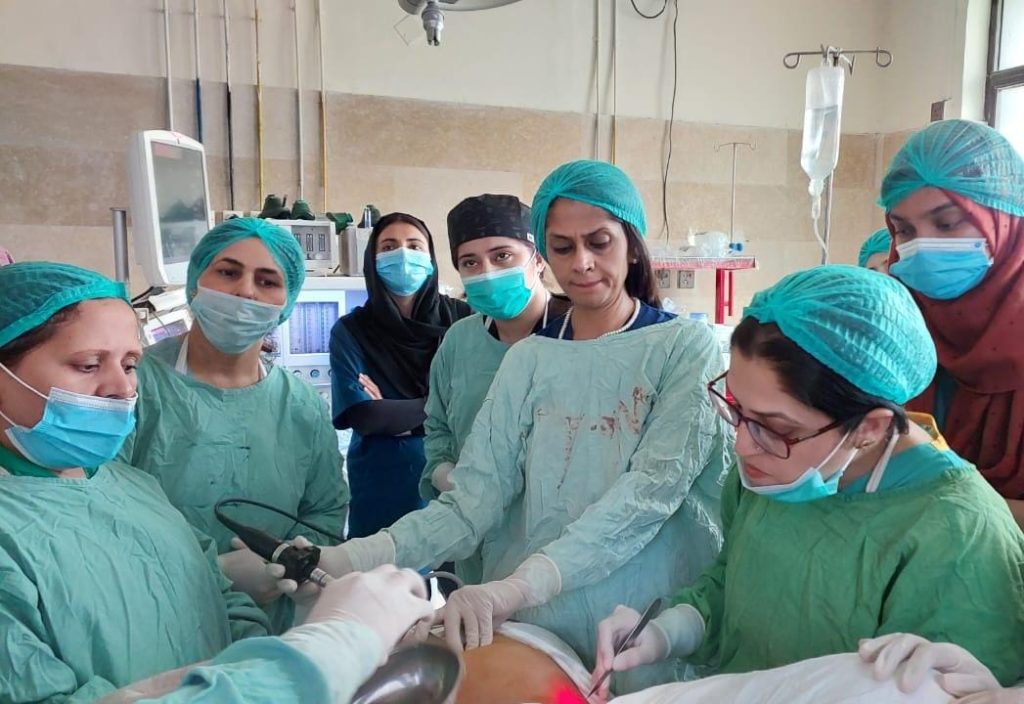
MS Gynecology And Obstetrics
Rawalpindi Medical University’s MS Gynecology and Obstetrics program offers a comprehensive blend of clinical training and academic learning to prepare specialists in women’s reproductive health. The program covers antenatal, intrapartum, and postnatal care along with the diagnosis and surgical management of gynecological conditions. Residents are trained in procedures including cesarean sections, hysterectomies, laparoscopy, infertility treatments, and high-risk obstetric care. The curriculum emphasizes maternal-fetal medicine, family planning, reproductive endocrinology, and oncology. Trainees actively participate in labor rooms, operation theatres, and outpatient clinics while also engaging in academic seminars and audits. Graduates of the program are well-positioned to serve in maternal and reproductive health roles, contribute to women’s health advocacy, and take leadership positions in healthcare delivery.
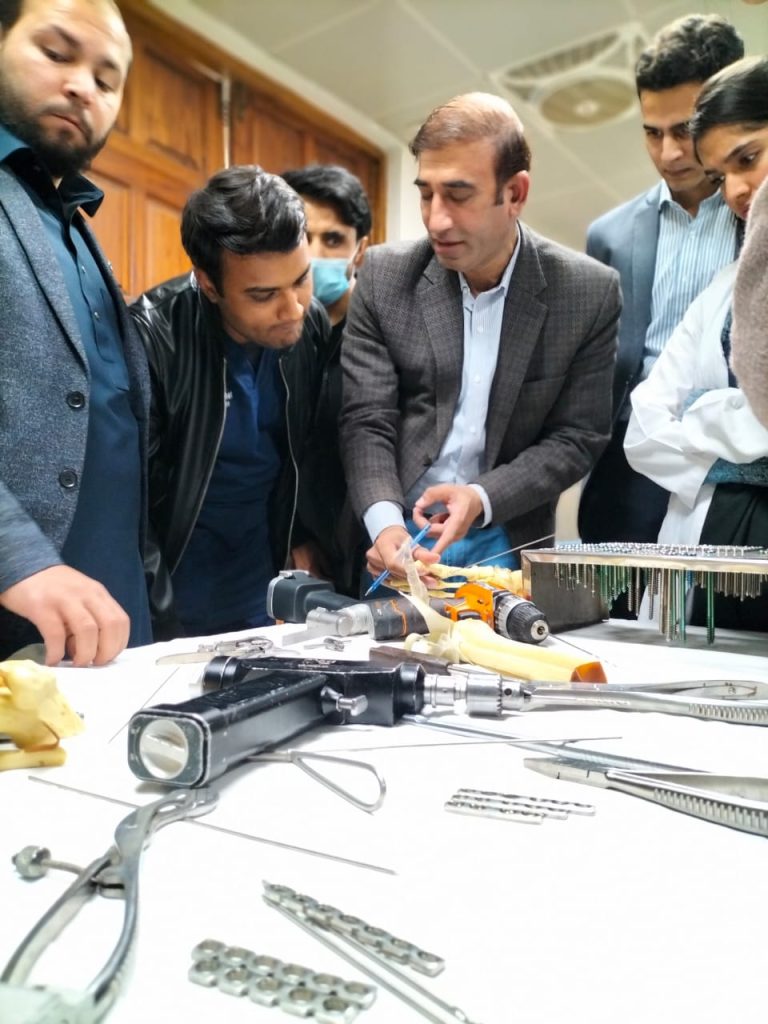
MS Orthopedics
The MS Orthopedics program at RMU is a dynamic and skill-intensive training pathway that prepares residents to diagnose and manage musculoskeletal disorders through both operative and non-operative means. The program encompasses trauma care, joint reconstruction, pediatric orthopedics, sports injuries, spine surgery, and orthopedic oncology. Residents undergo rigorous clinical training with extensive exposure to emergency orthopedics, fracture management, and elective orthopedic procedures. The curriculum incorporates advanced imaging interpretation, biomechanics, and rehabilitation principles. Academic development is encouraged through case discussions, journal clubs, and research presentations. Graduates are equipped to become leading orthopedic surgeons capable of addressing the rising incidence of trauma and degenerative bone diseases in Pakistan.
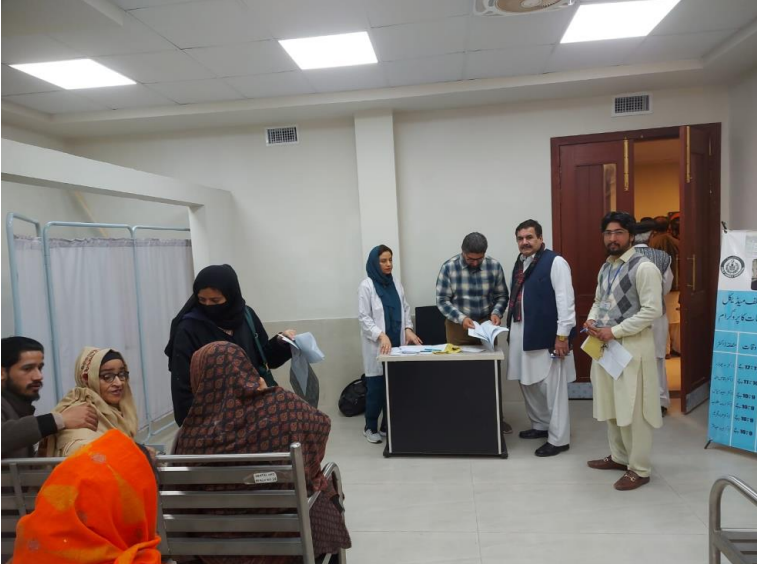
MS Plastic Surgery
RMU’s MS Plastic Surgery program is designed to cultivate surgical expertise in reconstructive, aesthetic, and burn surgery. The program provides exposure to a wide spectrum of procedures including trauma reconstruction, congenital anomaly correction, microsurgery, hand surgery, and cosmetic enhancements. Residents are trained in meticulous surgical techniques and patient-centered care through rotations in burn units, reconstructive wards, and cosmetic surgery clinics. The curriculum also includes training in wound healing, flap techniques, and tissue grafting. The program emphasizes innovation, ethics, and patient safety. Graduates are skilled in restoring form and function, improving quality of life for patients affected by trauma, congenital deformities, and malignancies.
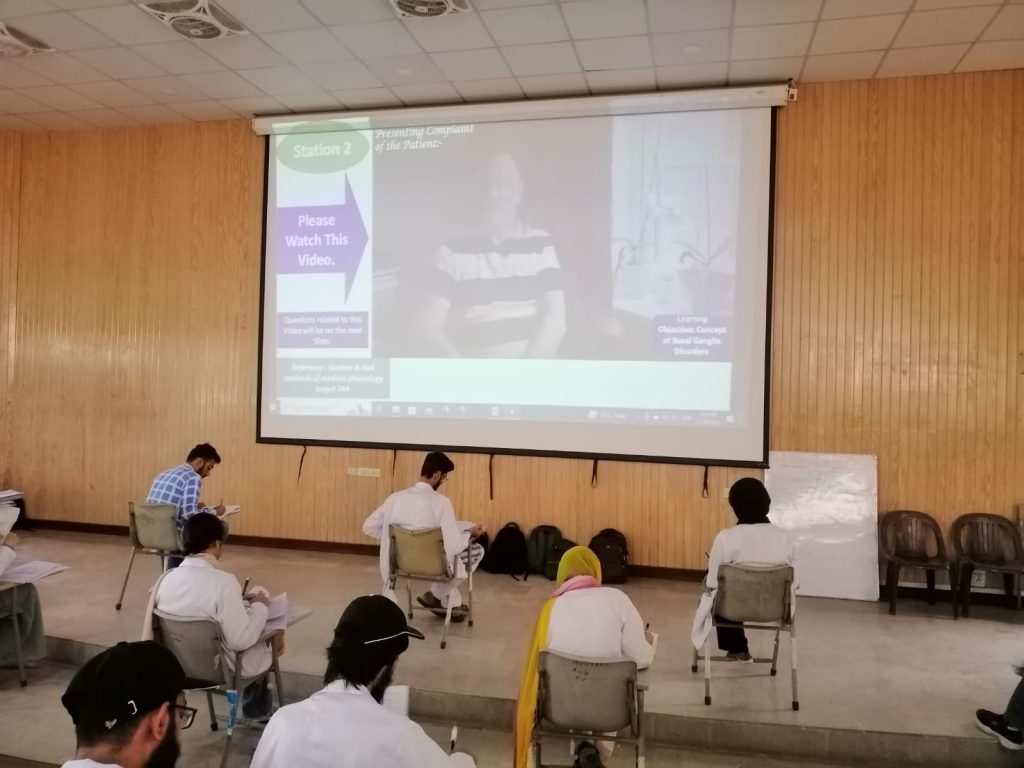
MS Pediatric Surgery
The MS Pediatric Surgery program at Rawalpindi Medical University focuses on the surgical care of neonates, infants, and children with congenital and acquired conditions. The program includes intensive training in neonatal surgery, urological and gastrointestinal anomalies, oncology, and emergency pediatric surgery. Residents rotate through NICU, PICU, and pediatric surgical wards and acquire expertise in both open and minimally invasive surgical techniques. The curriculum fosters a deep understanding of pediatric physiology and emphasizes multidisciplinary collaboration with pediatricians, anesthetists, and intensivists. RMU’s focus on high-volume centers ensures that trainees gain ample exposure to complex pediatric cases. Graduates become compassionate and highly skilled pediatric surgeons ready to serve in academic, clinical, and community-based roles.

MS Urology
RMU’s MS Urology program is a specialized surgical training course focused on the urinary tract and male reproductive system. The program includes comprehensive training in endourology, reconstructive urology, uro-oncology, pediatric urology, and andrology. Residents acquire skills in modern diagnostic and surgical techniques such as TURP, PCNL, ureteroscopy, and laparoscopy. The curriculum emphasizes evidence-based urological care, research methodology, and interdisciplinary collaboration. Trainees participate in outpatient clinics, operating theatres, and procedural suites under expert guidance. Graduates emerge as technically skilled and ethically sound urologists capable of delivering high-quality urological care and contributing to academic excellence and innovation in urology.
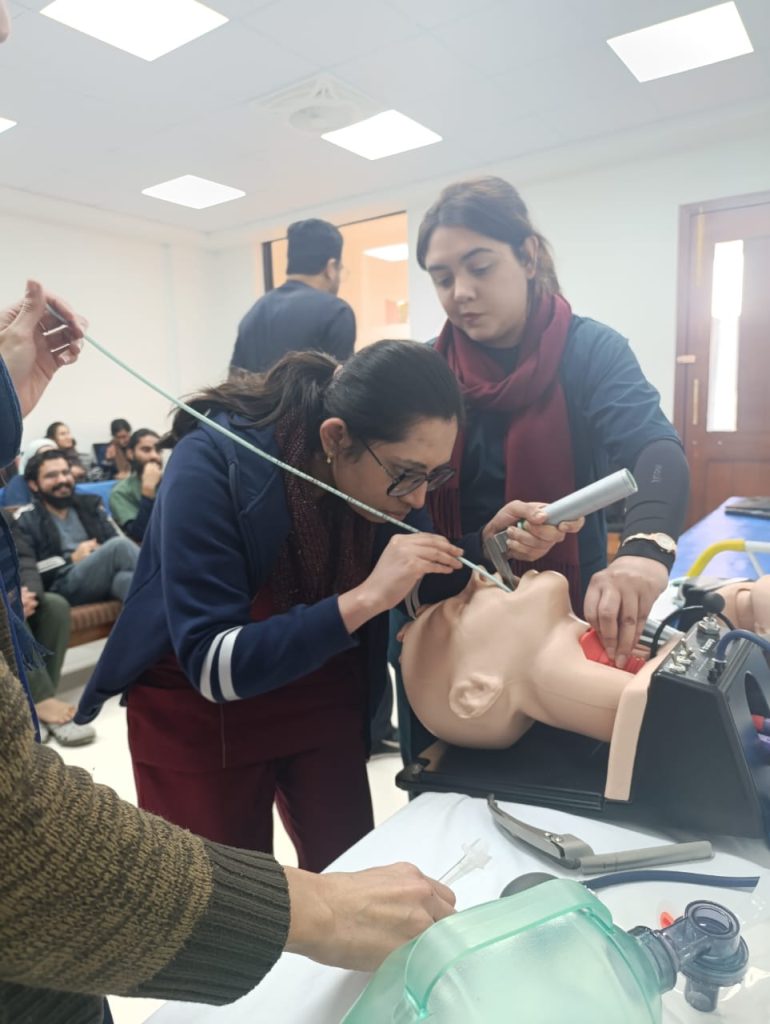
MS Anesthesia
The MS Anesthesia program at Rawalpindi Medical University is a vital specialty training that prepares residents to provide perioperative care, pain management, and critical care services. The program covers general and regional anesthesia, intensive care, preoperative assessment, and management of complex surgical patients. Residents gain expertise in airway management, hemodynamic monitoring, mechanical ventilation, and acute pain services. They undergo clinical rotations in operating rooms, ICUs, emergency departments, and pain clinics. Emphasis is placed on simulation-based learning, crisis management, and multidisciplinary teamwork. Graduates are prepared to become skilled anesthesiologists capable of handling surgical, trauma, obstetric, and ICU cases with confidence and precision.
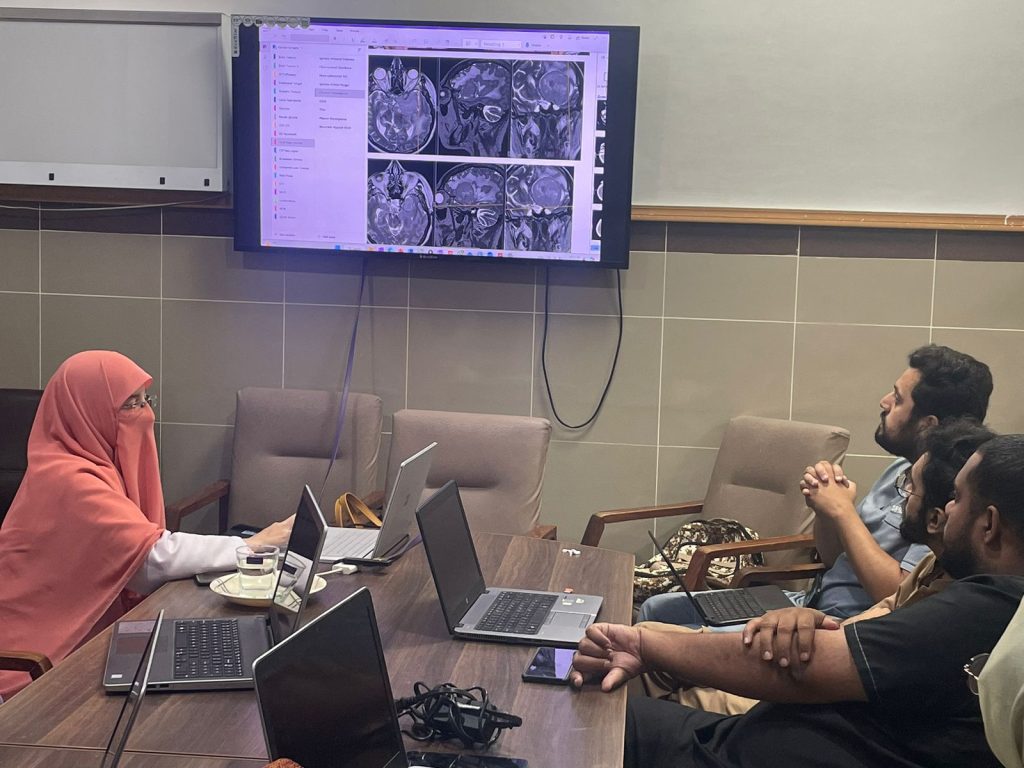
MS Neurosurgery
The MS Neurosurgery program at RMU is a rigorous and high-stakes training pathway for managing disorders of the brain, spine, and peripheral nerves. The program offers in-depth clinical and operative exposure to neurotrauma, brain tumors, spinal surgeries, pediatric neurosurgery, and vascular neurosurgery. Residents train in neurosurgical ICUs, operating rooms, and diagnostic units with advanced imaging and neuro-navigation systems. The curriculum fosters proficiency in both emergency and elective neurosurgical interventions and encourages involvement in research and innovation. With mentorship from experienced neurosurgeons, residents develop the technical skill and critical thinking required to manage complex neurological conditions. Graduates of this program are positioned to be leaders in neurosurgical care and academic medicine.
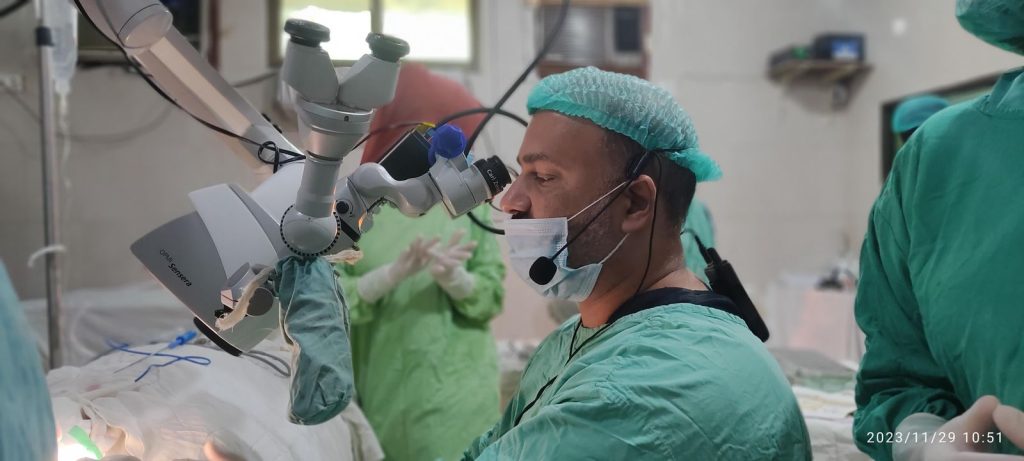
MS Otorhinolaryngology
The MS Otorhinolaryngology program at Rawalpindi Medical University offers specialized training in the diagnosis and surgical treatment of ear, nose, and throat disorders. The program provides hands-on experience in procedures such as tonsillectomy, septoplasty, functional endoscopic sinus surgery (FESS), mastoidectomy, and microlaryngeal surgeries. Residents also gain exposure to audiology, speech therapy, head and neck oncology, and facial trauma. The curriculum integrates anatomy, physiology, and pathology of the head and neck regions with surgical techniques and modern diagnostic tools. Academic sessions, surgical audits, and community-based ENT screening camps are part of the program’s comprehensive learning approach. Graduates are equipped to serve as expert ENT surgeons in both clinical and academic settings.
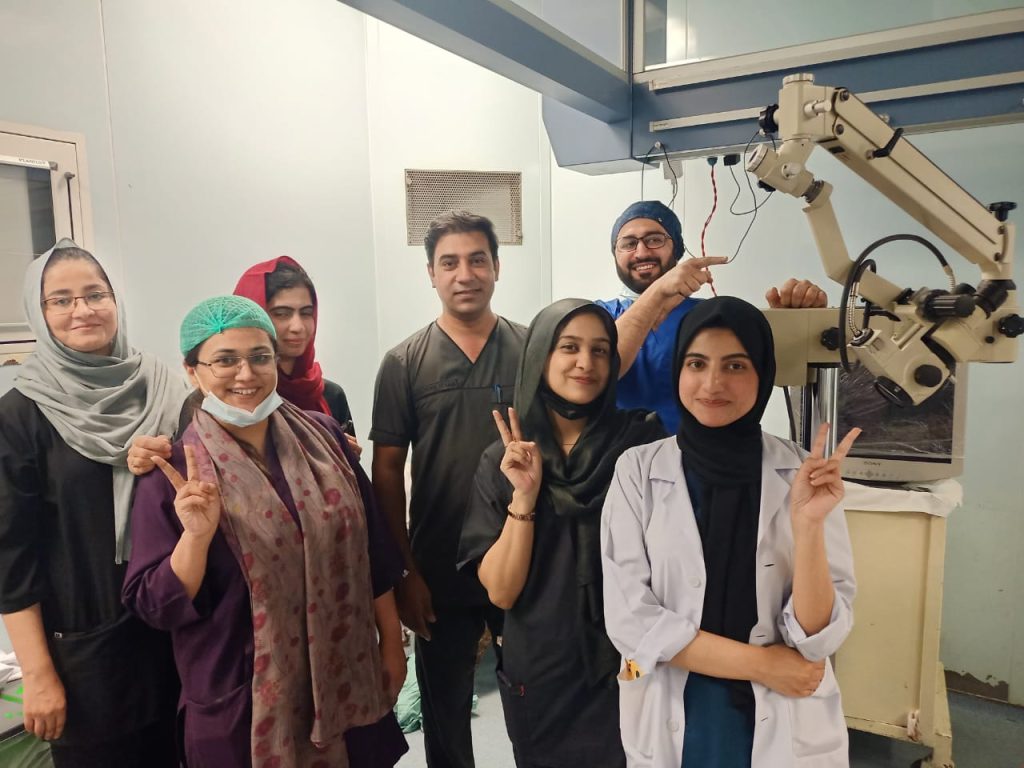
MS Ophthalmology
RMU’s MS Ophthalmology program trains residents in the comprehensive medical and surgical care of eye disorders. The program emphasizes clinical competence in diagnosing and treating conditions such as cataracts, glaucoma, retinal diseases, corneal disorders, and ocular trauma. Residents receive practical training in slit lamp examination, fundus evaluation, refraction, and surgical procedures including phacoemulsification, trabeculectomy, and vitrectomy. The curriculum incorporates ocular imaging, electrophysiology, and community ophthalmology. Trainees are also involved in outreach camps to address preventable blindness and provide vision care in underserved communities. With a focus on precision, ethics, and empathy, RMU ophthalmology graduates are prepared to deliver advanced eye care and pursue further specialization or academic careers.

